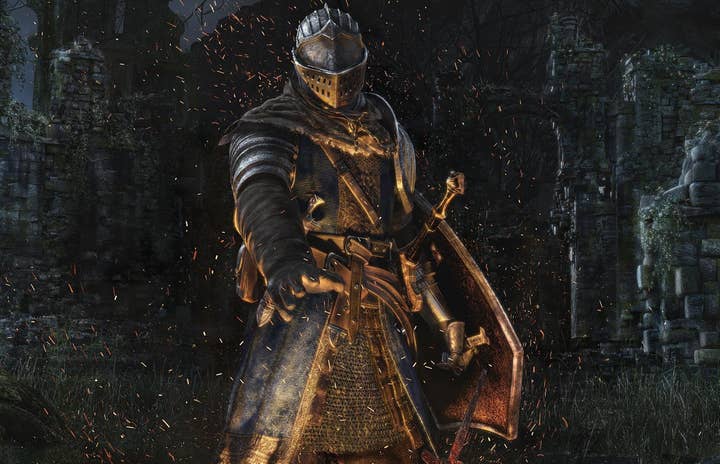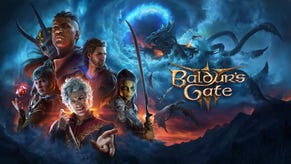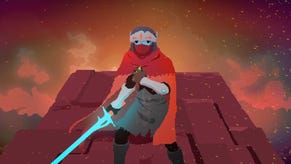Why the discussion around difficulty is outdated and archaic
At Ludicious X, ArenaNet's Jennifer Scheurle offered a roadmap for moving beyond the tired language and debates around difficulty in video games
The concept of difficulty has been central to the identity of certain parts of the gaming community virtually since the dawn of the industry. Long before there were birthdays being celebrated in virtual worlds, real-life marriages forged in MMOs, or entire games built around the creation and sharing of digital content, groups of people gathered in arcades or online to compete against one another, to test their skills, to beat the highest score.
Games have changed immeasurably since then, but that aspect of gamer identity has never disappeared, even as the term "gamer" has grown so broad as to be virtually meaningless. It can be seen in the criticisms levelled at "walking simulators" by certain online communities, or in the fury that greeted calls for FromSoftware's Sekiro: Shadows Die Twice to be more accessible to players. For some, it seems, difficulty is at the very core of what the medium exists to do.
These issues were addressed by Jennifer Scheurle, a senior designer at ArenaNet, in a talk at Ludicious X last week. In the title of her talk, Scheurle, who is working on an unannounced project for the Seattle-based studio, advised the industry to "ditch the difficulty discussion."
"Games now cover as many different topics as other art forms do, but the taste of elitism and exclusion has persisted"
"If you work in the games industry, or are part of the community surrounding games, you are probably used to bumping into the same discussion multiple times a year," she said. "The discussion around what difficulty is, if it's the right one for 'real' games, and therefore 'real' gamers -- which, you know, is a little tedious in my personal opinion.
"Historically, gaming communities have been centred on competition and elitism, as a result of being a cultural subgroup -- I'm sure you remember that from your childhood. But games have evolved far beyond those more homogenous flavours and have expanded their thematic territory vastly.
"Games now cover as many different topics as other art forms do, but the taste of elitism and exclusion has persisted. Discussions around difficulty [keep] cropping up, and with an intensity that manifests itself even more."
In Scheurle's view, those discussions among players often centre on whether making games more accessible is "right" or not -- as was the case with Sekiro. But she admitted to being tired of that conversation, and created her talk as a way to give developers "an alternative way of thinking" about difficulty, that will have a positive influence on the way players engage with the issue.
Your audience is not monolithic
Over the course of her career, Scheurle noticed that the majority of game designers think about difficulty in a similar way. It was also apparent that the way designers think about difficulty is very different from the problematic way that certain players do.
"Of course, challenge is part of our discussions when we make games," she said. "But I believe many players would be surprised to learn that the elitism that tends to take hold in player-led discussions is largely absent from design conversations."
"Most players engage with games in a multitude of ways and with diverse motivations"
Developers can't fall into the trap of seeing their audience as a "monolithic mass" of people, all seeking roughly the same experience. It is the job of a designer, Scheurle said, to consider the myriad personalities and expectations of value that will be present within any group of people playing any particular game.
"Most teams will identify a group of core player motivations that they are looking to cater to throughout the experience, and that's how discussions around challenge emerge in context," she added. "Most players engage with games in a multitude of ways and with diverse motivations. Very few player types only care about one of those motivations."
There are many well established "player types" that designers consider when making a new game, and Scheurle offered just a handful of the most widely known examples:
- Completionsists, who desire collection and exploration
- World Weavers, who seek out lore and role-playing mechanics
- Wanderers, who prefer to drink in the ambience of a world slowly
There are many more, Scheurle said, and every player is a combination of these types, responding to the relevant parts of an experience with varying degrees of intensity.
"Especially when you work in AAA, you tend to cater to between three and four of these player types at the core of your game -- because you have to."
The strongest communities value diversity
For a game's community to prosper and survive over a long period of time, the game itself must reflect the values of multiple player types and reward them all. Even a "hardcore game" -- a term that Scheurle also sees as problematic -- built around competition needs to encourage and create opportunities for players at every level of skill. And the very best games will have players that can succeed in a number of ways, from climbing ranked leaderboards, to making and sharing content, and mastering crafting systems and trading economies.
"The discussion around difficulty is, in my opinion, outdated and archaic -- both for developers and players"
"All of these things are necessary for a healthy community, and usually game developers consider all of these aspects when creating a game," Scheurle continued. "In reality, what we're actually doing when creating a game holistically is to not think about difficulty, but instead gameplay flavours."
Scheurle suggested "gameplay flavours" as a better way of talking about features and systems usually discussed in terms of difficulty. It recognises that different players are challenged by different systems in different ways, and challenges the gaming community's tendency to value one kind of skill above all others.
"Pretending that dexterity is the most sophisticated of them is a flawed way of looking at difficulty in the first place," she added. "Which is why the discussion around difficulty is, in my opinion, outdated and archaic -- both for developers and players."
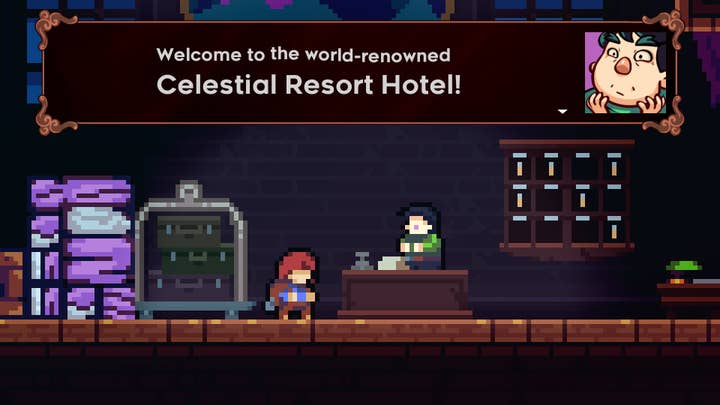
Give the player options
This speaks to Scheurle's issue with terms like "hardcore", which are typically applied to players who are skilled in a very narrow range of video games. A person who spends hours each day executing meticulous plans for an island masterpiece in Animal Crossing is not typically seen as hardcore, and yet the investment of time and focus is comparable to any dedicated player of first-person shooters.
"When game designers think about difficulty, we think about mental load really," Scheurle said. "None of these things are strictly a question of 'difficult versus easy' -- they're more about how we guide players to greater competency, and what the journey should be like."
"Believing your game is not stifled by giving your players options is a wonderful approach to developing a player contract of trust"
For Scheurle, the artificial gap between these two types of players is reinforced by the very language developers use to communicate with players. At the start of many games, she said, players are offered a choice of difficulty levels, each typically described with a word or two -- the same basic approach that has been in place since the earliest days of the medium. However, none of these words give any clear indication of what will change as a result of that decision.
"Does a higher [difficulty level] make you stronger? Do you have more health? Is it a question of doing more tanking and having to deal more damage? Are there additional systems you won't need to learn or deal with? Are you locked out of systems that you're used to?
"Essentially, you don't know what you're getting with prescriptive difficulty settings, and developers are trying to guess what someone looking for a more or less challenging experience might want out of that experience. That can only be a flawed approach that will leave most of your players unsatisfied."
Scheurle highlighted Matt Makes Games' Celeste as an example of a game's challenges being handled in a more modern and progressive way. Players can alter small details like the speed of movement, and even disable specific mechanics they have trouble with.
"Believing your game is not stifled by giving your players options is a wonderful approach to developing a player contract of trust, in my opinion," Scheurle added. "Because trusting that your player will get it, even if it doesn't follow every vision you've ever had of the design, is part of how we need to evolve the conversation."
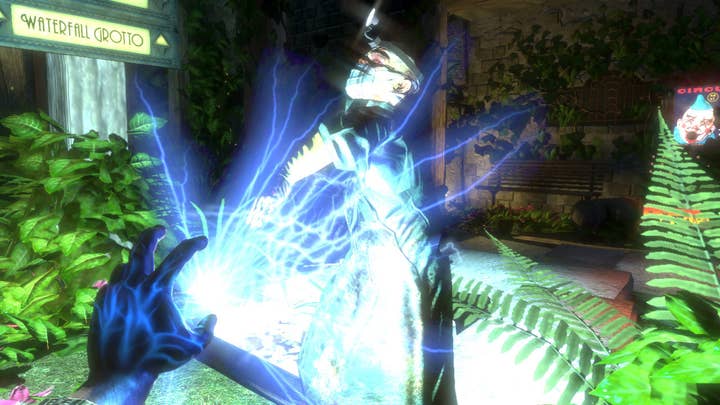
"Hardcore" is a myth
Scheurle has explored the role of difficulty in games before, through talks on what she describes as "hidden game design." Any proper discussion of how games are made, she said, will inevitably "demystify the idea of hardcore," because players' identification with that ideal is rooted in a lack of understanding of the many ways games help them to feel powerful.
"It largely involves showing players that games are fundamentally designed to not only be beaten and overcome, but they also actively use additional, hidden mechanics to support players where they are lacking as humans," she said.
"Escaping a fight by the skin of your teeth is more exciting than constantly dying, or mowing through enemies with ease"
In Bioshock, for example, Irrational Games implemented a system that made sure the first shot fired by any enemy NPC missed its target. That first bullet, even when fired from point-blank range, serves as a signal to the player to pay attention, rather than an attempt to deal damage.
"Not to undermine the player's skill," Scheurle added, "but to make up for the lack of mental resources in a game where we don't have access to our usual senses, as we would have in the real world."
Many first-person shooters employ a similar hidden mechanic, and the same is true of the "built-in grace period" when the player is close to death in a fight in Assassin's Creed. Like every other developer of third-person action games, Ubisoft understood that players feeling skillful was more important than actually relying on their skill alone.
"Escaping a fight by the skin of your teeth is more exciting than constantly dying, or mowing through enemies with ease," Scheurle added. "[Designers] want every encounter to feel interesting and unique. We don't want monotonous experiences, and that's why hardcore gaming is not real.
"Every game I've ever played -- and that you have ever played -- has some degree of hidden mechanics like this."
And yes, that includes Dark Souls
No discussion of the role difficulty plays in video games is complete without at least mentioning Dark Souls, Scheurle admitted. But even FromSoftware's series can be discussed and understood without falling back into the elitist language typically applied to hard video games.
"Dark Souls is not a more or less difficult game compared to others really," she said. "It just has an unusual progression system that we culturally perceive as hostile -- which is learning by doing, really."
"There is no such thing as elite gamers and casual gamers -- that is a myth -- only different styles of growth"
This is a scary way to progress through a game, Scheurle said, because it is unpredictable, and it challenges one of the notions at the very root of exclusive, hardcore gamer culture -- that death means failure. In Dark Souls, the link between learning and failing is "explicit" in a way that few games have ever managed. As a result, dying becomes a tool for advancement, as the contract of trust with the player is that they "always know why and how they have died, so they can avoid it next time."
"I believe that all good games are one thing: the harmony between player expectation on one side, and the delivery of that experience on the other," Scheurle continued. "Fundamentally, all games are meant to be beaten in the end. How you are expected to do it depends on the contract of trust between players and developers.
"The hardcore game is a myth. All we do is engage in a contract of rules, not in more or less difficulty, since difficulty is -- in the end -- in the eyes of the player."
Whether a game like Dark Souls should take lessons from Celeste, and provide the player with options to create their own definition of what difficulty should be, was left an open question. But in her closing remarks, Scheurle summarised her talk in terms that suggest FromSoftware's fair but utterly distinct contract with its players will likely never move beyond the archaic notion of difficulty in video games.
"Instead of thinking about players as a fixed group, ranging from casual to hardcore, we should build our games with a variety of flavours and engagement in mind," she said.
"All games have their place. There is no such thing as elite gamers and casual gamers -- that is a myth -- only different styles of growth that we put in front of players. And that can all happen as long as we trust each other, and the beauty of modern games is that we have recognised the desire and value of different player types.
"The idea of 'flavour' instead of 'difficulty' is already part of how we develop games. I think it's time to change our language to reflect that."
